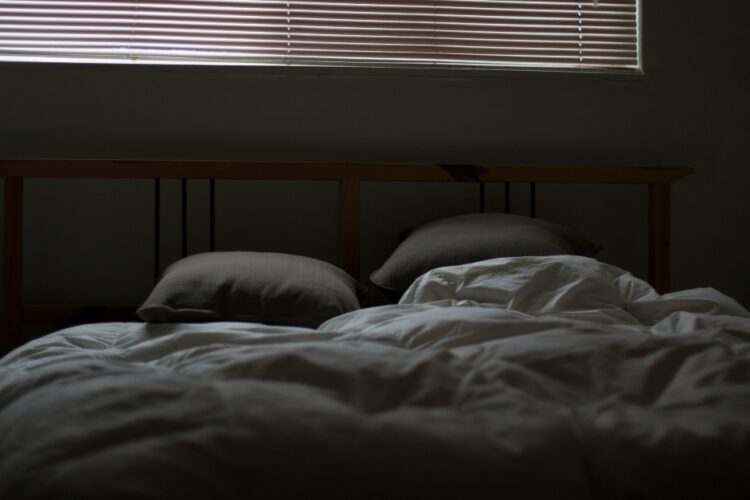Eight hours of sleep is the ideal, but not everyone can achieve this, whether due to early work or insomnia.
Some people can function despite sleeping for only five or six hours, but Dr. Dan Friedrich, a doctor on TikTok, explains why sleeping for five hours or less can turn you into a ticking time bomb.
Moderation is key
Embed from Getty ImagesIn a viral TikTok video, the doctor explained how getting little to no sleep can lead to “an early death.” He said studies have shown that the ideal amount of sleep is between six and eight hours, preferably seven hours.
Extremes are bad for your health
Embed from Getty ImagesThe doctor continued by saying that more than nine hours of sleep can be bad for your health, but five or less can be more detrimental on so many levels. “Cardiovascular disease, all types of diseases are associated with sleeping that little,” he said.
Why the right amount of sleep is important
Embed from Getty ImagesSleep allows your body to store energy, repair and recover from daily activities and injuries, and reset your brain so that it’s ready for a new tomorrow.
According to the Cleveland Clinic, missing as little as 1.5 hours of sleep can lead to memory problems, agitation, and lack of alertness.
Little sleep can lead to cardiovascular disease
Embed from Getty ImagesLack of sleep can lead to hypertension (increased blood pressure). In addition, sleep disorders can put you at a higher risk for arrhythmias (abnormal heart rhythm), obesity, and Type 2 diabetes, which can all eventually lead to cardiovascular disease.
It can also lead to neurological diseases
Embed from Getty ImagesSleep deprivation can also lead to developing diseases such as Alzheimer’s and dementia, as the lack of sleep leads to the accumulation of toxins in the brain, which can lead to damage that leads to Alzheimer’s. In addition, the sleep-deprived are more liable to have strokes and kidney diseases.
Lack of sleep spikes your cortisol levels
Embed from Getty ImagesCortisol is the “stress hormone” in our bodies. Sleep deprivation increases its levels in our bloodstream, which leads to increased anxiety, weight gain, heart disease, signs of aging, and pre-diabetes.
Cortisol also increases blood sugar levels, which can eventually lead to glucose intolerance and insulin resistance, which leads to diabetes.
Cognitive decline
Embed from Getty ImagesA 2022 study concluded that people who sleep for less than 4.5 hours and more than 6.5 hours are more prone to cognitive decline.
Senior psychology lecturer Greg Elder wrote: “The study showed that sleeping longer than 6.5 hours was associated with cognitive decline over time.” He also pointed out that quality of sleep may matter more than quantity “when it comes to risk of developing dementia.”
Always feeling tired
Embed from Getty ImagesNo amount of coffee will get you going if you don’t get your recommended hours of sleep.
Sleep deprivation leads to fatigue, low energy, and excessive sleepiness, which can make day-to-day tasks debilitating and harder to achieve.
Lack of sleep affects your immune system, too
Embed from Getty ImagesSleep deprivation makes you more susceptible to contracting diseases. During sleep, your body produces cytokines, proteins that send signals to your body cells to keep your immune system functioning.
However, when you don’t sleep enough, your body produces white blood cells instead, which causes an imbalance in your immune system that can negatively affect you.
The ideal sleeping hours for each age category
Embed from Getty ImagesAccording to the National Sleep Foundation, adults aged 65+ need to sleep for seven to eight hours.
People between 18 and 64 need to sleep for seven to nine hours. Teenagers and younger people need more hours of sleep to help develop their brains and bodies.



















































